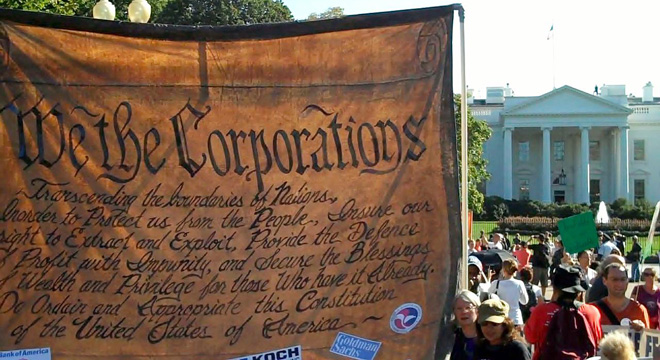The White House has just unveiled a new public petition website, “We the People,” promising to respond to every petition submitted by anyone online that draws 5,000 or more digital signatures in a month or less.
What could possibly go wrong with that?
Three words: Anonymous, LulzSec and 4chan. Or, if you prefer, just one: marijuana.
But let’s back up. There’s a good argument to be made that White House has admirable intentions in unveiling the new petition submissions website, which will live at www.whitehouse.gov/wethepeople. (Right now, the site is just in a very limited preview phase and is soliciting e-mail addresses from interested people who can sign up to receive updates when the site launches in full, sometime in the coming weeks.)
It is the latest public relations push in President Obama’s “Open Government,” initiative, a memorandum signed on his first day in office in 2009 to improve transparency from federal agencies, largely by relying on new digital tools like the government spending-tracking websites data.gov and recovery.gov.
Aside from it’s Constitution-friendly name, the We the People website trumpets the longstanding history of petitions as tools for affecting profoundly positive societal and legal changes.
“Petitions have played an important role in many of the changes throughout our history, from ending slavery to guaranteeing women the right to vote,” the website proudly proclaims. “The We the People platform on WhiteHouse.gov gives Americans a new way to create, share, and sign petitions that communicate your views about your government’s actions and policies.”
This is followed by a verbatim transcript of the First Amendment and a painting of the signing. We’re actually surprised the website doesn’t automatically begin playing a loop of “We Shall Overcome” upon loading. (Maybe once it goes live for real?)
As described in a blog post by Macon Phillips, the White House’s director of digital strategy, the We the People website will allow anyone over the age of 13 to “create or sign a petition that calls for action by the federal government on a range of issues. If a petition gathers enough support (i.e., signatures) it will be reviewed by a standing group of White House staff, routed to any other appropriate offices and generate an official, on-the-record response.” Phillips clarified that “initially petitions that gather more than 5,000 signatures in 30 days will be reviewed and answered.”
What the website is short on is the technical details: Exactly where will the petitions be submitted and how will they be moderated? By whom? Can users flag petitions for inappropriate content? What other companies or agencies are involved in the technical aspects of the website? How will the White House ensure participants are actually at least age 13? How will it prevent special interest and advocacy groups from monopolizing the submissions process?
And the big one: How will the White House limit spam and prevent pranksters such as hacker collectives Anonymous, Lulz Sec and the pioneering purveyor of freewheeling explicit content, image board 4 Chan, from hijacking the petitions process and turning it toward their own questionable ends?
After all, all of the aforementioned groups, particularly 4 Chan, have a long (in Web time) and successful history of overtaking open online voting forums and dramatically influencing them for little more than their own semi-sadistic amusement.
Of course, those groups aside, the few occasions to date when the President has “successfully” held online Q and A events involving crowd-sourced questions, one topic keeps topping the list of the most popular questions: Marijuana legalization.
That was the case for Obama’s CitizenTube event on YouTube last year and for his Twitter town hall in July, though both times, Obama basically ignored the questions, much to the chagrin of pro-marijuana legalization advocates.
Which begs the question, will there be a list of topics that aren’t allowed to be petitioned?
Phillips is attempting to answer some of these questions and others submitted by users today on Twitter, under the hashtag #WHWeb. In regards to the above question about controlling for petition topics, he told tech journalist Alex Howard “there will be a defined set of topic people can choose from but its a wide range, and there will also be ad hoc tags.” That doesn’t sound like censorship, exactly, but it doesn’t sound like a truly open submissions process either.
We won’t know the full answer on how any of this will actually work until the site launches for real, though, so stay tuned and sign up and watch the brief introduction video below:









